#tragic villain
Text
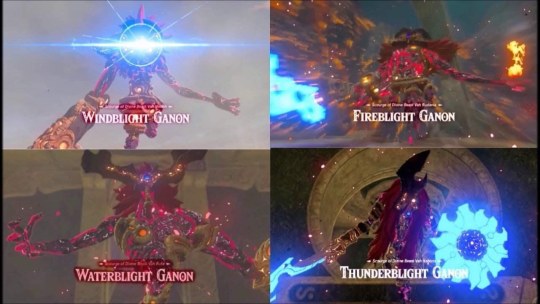
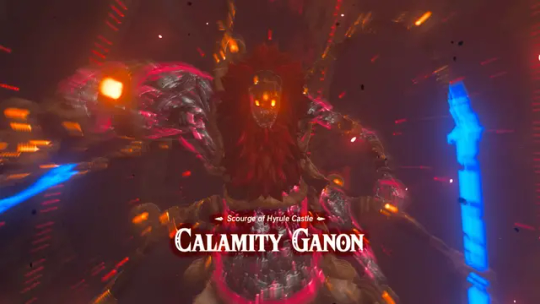


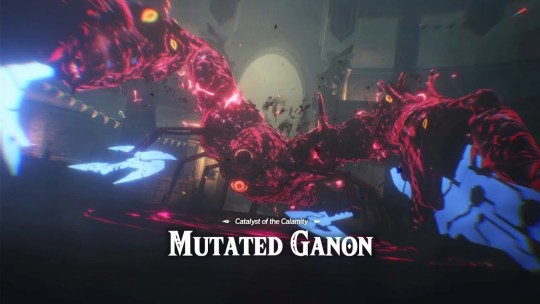

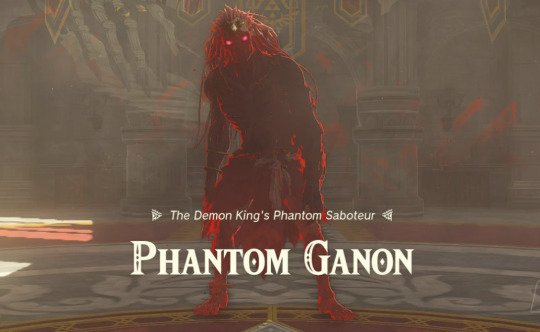
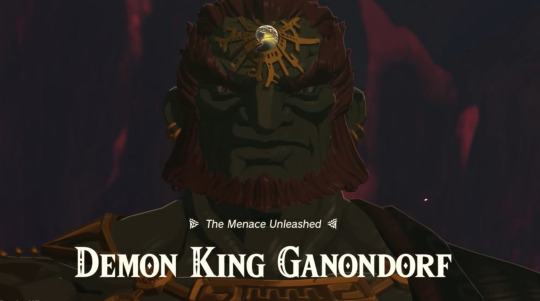
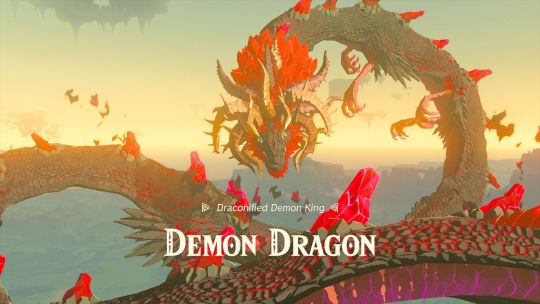

Demon King Ganondorf/Calamity Ganon Appreciation Post
#ganon#ganondorf#calamity ganon#the legend of zelda#legend of zelda#breath of the wild#age of calamity#tears of the kingdom#complete monster#tragic villain#evil entity#demons#dark lord#tyrant
249 notes
·
View notes
Note
Hi,
I see you finished Monster and are quite versed in Johan. Can you help me understand the depth of his character better? I feel like many people miss the point of it. Also I'd like to know why you like him so much.
Oh, there is so much to say about him but i will try to make it short as possible.
Lets Talk About Johan;
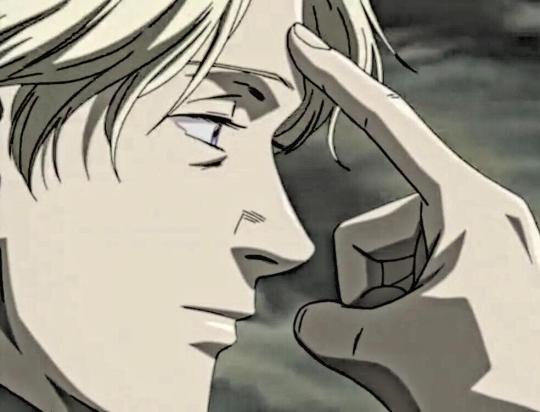
First of all, i heard his character as some 'evil' mastermind so i wasnt really interested in his character until i experience the story by myself. I wondered why this series is popular so i decided to give a chance. I tought Johan was like Afo (from Bnha) but he turn out to be a lot like Shigaraki lol.
What makes a character depth is if they are not one-dimensional, that there is a more than how they seem from surface. And Johan fits well since he is mysterious character who is seen as angel, monster, devil, basically anything but human but they end up failing to understand him because if he was so simple, police would've catch him a long time ago.
At the start of series, he seems like your usual dangerous serial killer which fits the psychological thriller theme of story. And one of the best thing in series is his connection with Tenma. A doctor saves his life and this dangerous killer starts to view him as parent figure. A killer who see no worth in life and the doctor who thinks every life is equal, especially saving Johan is the reason he starts to to be able to live his life as a real doctor. Only to learn the child whom he saved turn out to be serial killer.
Tenma feels responsible for this and goes to journey to kill Johan. During this journey, we aldo discover some hints of what made Johan the way he is. The irony is we get the hints and a lot of characters perspective of him, everyone except Johan.

Is his messages about 'the monster inside of him' serious or not? Tenma assumes Johan is enjoying this at first, then he assumes Johan has multiple personality disorder. And later when he talked with other doctor, he assumes Johan is just playing with him because thats what most serial killers do with police. This is interesting because all of those end up being wrong. Johan doesnt enjoy from killing people. Johan doesnt have DID. Johan didnt write those messages to play with them. We know this because we later learn that he is unconciously imitate the fairytale stories he read as child.
Meanwhile, he has fanclub. A lot of murderers admire Johan because they view him as destruction Buddha. Just like others, he is seen as monster but why though? Its not like he is the only killer in the world. And personally, a lot of characters are more 'evil' than him so the thing about Johan is; he treats human life as nothing. Not just other people but also himself. Thats what makes him so scary to everyone. He doesnt even do it out of joy, money, statue. He looks like the devil in human form. He spreads misery to world. (Thats why he burns library when they said "its humanity's treasure" LoL.)
To people, that is scary. When they look at Johan, his eyes, the see someone who has no identity (nameless world). They see someone who treats life like as a game. Which explains why many people are afraid of him.
Some also want to use him, such as they want him to make second Hitler and he is like 'Nope'.
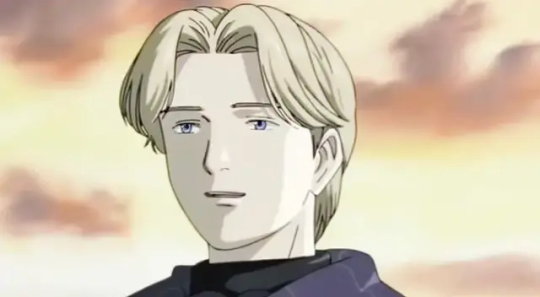
I think the main reason i love Johan is that he is like a magician. He can create a beautifull illusion. He is someone who can touch people's hearths because how well he understands them. Which is why he is seen as angel when people dont know he kills people.
This is also why he can use other killers for himself. He can see their vulnerabilities. Because even a killer is still human and they might need acceptance, to be understood by someone. Johan can give it to them. And they wish they were like Johan because they think everything would be a lot easier for them to kill others, like some kind of edgy teens. They fail to understand the person they want to be is extremely miserable.
On other hand, Johan can use his skills with curing people. Such as him waking Suk's mother, he made her remember her son again. Though he does things with ulterior motives, same skills can be used for good things. He can make people happy or miserable by little things. With a little magic or just skill.
And even though he is villain, he has very relaxing voice. He is very elegant. He listens other people. This fits perfectly well with his manipulative character.
We also never know when he is sincere or not because when you think he doesnt he actually seem to care, such as when he cried for Karl. Apperantly, tears were real. He is always in his world, its so funny when you think about he is some kind of mastermind.
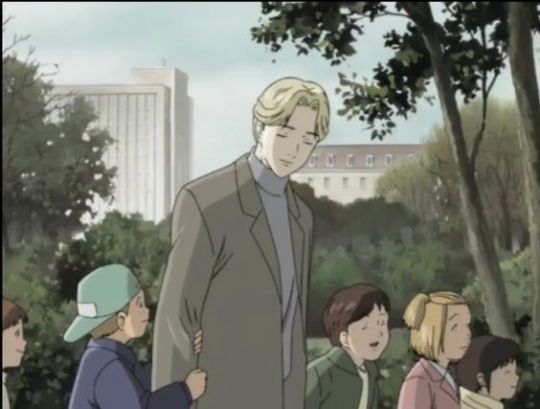
Also his interaction with kids is so interesting. I think he geniuely enjoys being around them. Otherwise, why would he bother to spend time with them, why would he know so much about child's rights, why would he look for picture book for a friend? This is the same guy who encourage kids to rooftop game (and the scene where he was projecting on Milos) which is messed up. It gives me chills. His nihisilism, him viewing life as game end up resulting him expressing love as twisted.
----
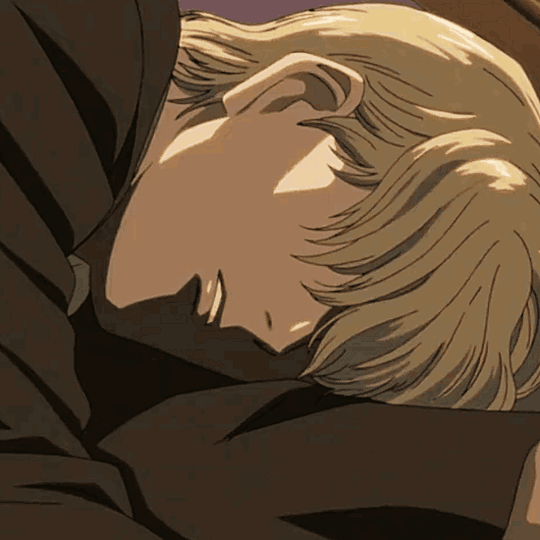
Later, everything changes when Johan finds certain book in library. Basically, Johan's character doesnt necessarely stay same during the series. He changes his motives from unconciously imitating nameless monster stories to find actual monster who ruined his life. Even though he does messed up things, everything about his character makes sense with that scene. Johan geniuely believed that he is nameless monster. Johan geniuely believed that he doesnt exist.
Everything about him makes sense because it explains why he doesnt think death as much of it. Because if someone doesnt exist, they cant be killed. If someone doesnt exist, they cant be responsible for killings. He is detached from reality. Its not that he didnt feel. Its that he doesnt view it as real the way other people does. Because Johan isnt there. This is the tragedy of Johan's story. He doesnt have name. He doesnt have identity. He feels as he doesnt exist.
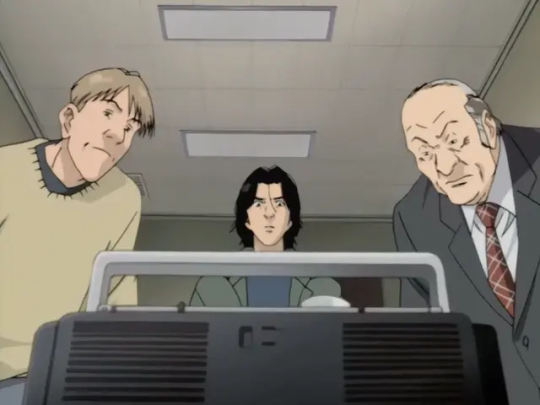
The famous 'monster' tape everyone after is about a child unable to see the difference between fairytale story and reality. 'My name is Johan. My name is Thomas. My name is Hans. My name is Otto.' He is them but he is neither of them. Johan views Anna as his half, as Anna is the real one and he is fake copy. He killed people as child, not because he is evil but because he geniuely thought that monster is coming after them. He cant even separate his own memories from Anna's. He takes all bad memories both to protect Anna and other reason is to become someone. He wanted to have identity, he wanted to live so bad but he didnt have on his own so he took it from others, just like the nameless monster.
This is also why Johan is also affected by Tenma's saving him. He probably wondered Tenma wouldnt save him, if he knew he was monster. He was kinda right because Tenma regretted his decision but he was wrong because Tenma couldnt shoot him and he saved him the second time. He showed him that he has right to live, he has right to exist, and that he has a name so he is not monster. This is why Johan can open up his worst insecurities. And they really give father-son energy and i think thats cute. I am glad that even after years Tenma visists him at hospital.
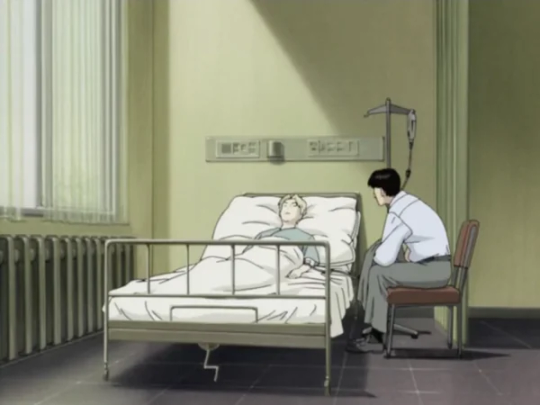
And we can guess what happened at the end thanks to Grimmer (one of the characters who deserves better), 'The monster become human at the end'. and Lunge said that if he were not a human being, he would not leave a trace, only humans leave a trace. For the first time we see Johan leave his mark. So Johan is no longer a monster, just a human. Also, his real name doesnt matter, he is Johan to us/all.
I love the messages of story. There is a monster inside all of us, but we can contain/heal it and after all, we are all human, our lives are equally valuable and stealing a person's name is the biggest crime, so having a name is very important. Story still has certain writing issues but generally, it is good story. Johan is well written character because his story is such a journey. We cant even really appreaciate the story without fully understand Johan. Every scene he is in meaningfull. And personally, i think his story is very empathic because of how tragic he is. Also sometimes he looks so funny and weird which makes him entertaining. He is such a good character.
Though you are right, anon. Many people still misinterpret the story, especially his character but anyway, there are still people who makes great analysis about him. Such as this analysis made by @cyanogoth.
Its ironic that most/some main villains have the most interesting and sempathic backstories, even though they are supposed to be 'big evil' or something but in reality, they are not really.
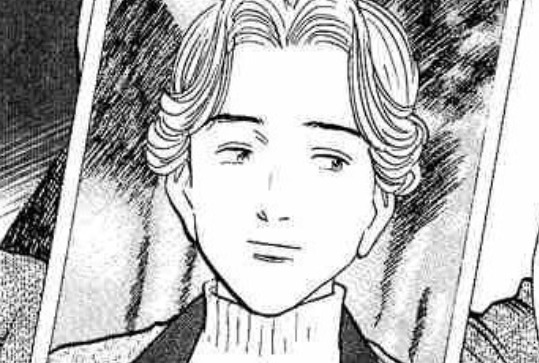
Anyway, he is fun to think about, i love him, lol.
#anon ask#johan liebert#tenma kenzo#tragic villain#naoki urasawa's monster meta#monster meta#monster#monster analysis#character study#character analysis#monster naoki urasawa#naoki urasawa#naoki urasawa's monster
38 notes
·
View notes
Text
Wow.
Denis Villeneuve was able to do successfully in 5.5 hours what D&D botched over 80+ hours.
When the problem is the storyteller, not the story...
#dark messiah arc#paul atreides#daenerys targaryen#anti daenerys targaryen#because her stans are children#dune#a song of ice and fire#game of thrones#anti game of thrones#anti d&d#anti dany stans#denis villeneuve#dune part 2#villian protagonist#tragic villain#tragic hero#asoiaf
34 notes
·
View notes
Text
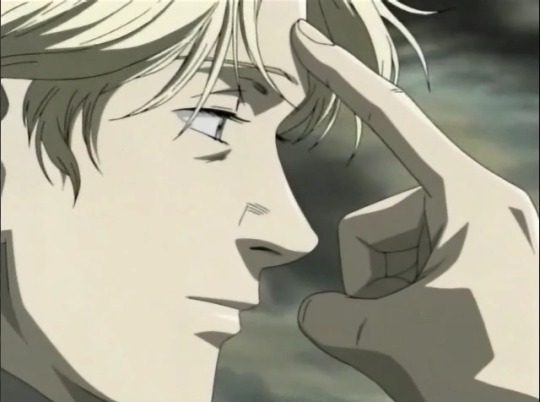
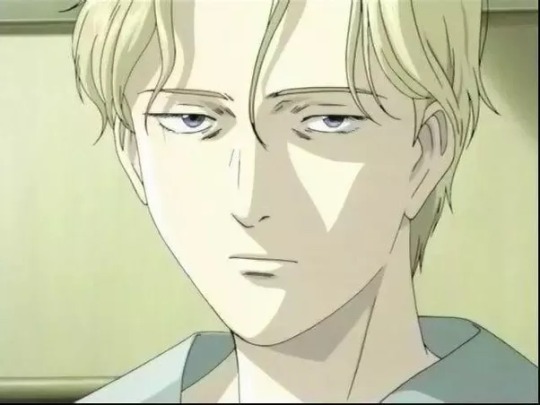
Anytime there’s a closeup of Johan in Monster it kinda freaks me out! Not just because of how much he scares me, but also it’s his eyes; he looks absolutely exhausted. Even when he disguised himself as Anna/Nina you could still see those bags under his eyes and it makes you realise just how much you really don’t want to be in his head! It’s the kind of tired that sleep doesn’t cure💔
40 notes
·
View notes
Note
So I'm re-reading the series, trying to look at characters and plots in different ways and look for symbolism. I am doubtful of Dany, not full anti rn but wary. Do you think she could do good? Or is she doomed, always planned to be a dark/villain that used to be a naive child?
Dany was always meant to be a villain in the end.
This is in no way diminished by the fact that she started out as a helpless victim in a horrific situation. These circumstances inform her arc, they are part of what sets her on this path. But being a victim is not a qualification for goodness, it does not make people stronger or better. Suffering makes us weaker and worse. It is kindness and compassion that make us strong and that help us grow and heal.
Dany barely got any of that in her life. The things she does directly relate to that, to the poisonous way she was raised. She is a tragedy.
We are not meant to hate her. (I strongly dislike her, but that's my personal taste.) She is a figure to be pitied, even as we slowly discover her to be a monster shedding its veneer.
She wants to be happy, she wants to be a force of good. But she has no real concept of what that actually is because she was raised to view herself as inherently separate from other human beings, as a superior Targaryen catergory of her own, and being raised on the run with only Viserys her brother-king, she never had a chance to understand what connection and community actually are. But we need these things to properly function, they are the basis of survival, peace and justice.
Dany could hear the singing of the red priests as they lit their night fires and the shouts of ragged children playing games beyond the walls of the estate. For a moment she wished she could be out there with them, barefoot and breathless and dressed in tatters, with no past and no future and no feast to attend at Khal Drogo's manse. (AGOT, Daenerys I)
It is tragic when she believes her actions to be good and helpful, when they are often at least partly horrific, and she cannot see past her intentions and her own point of view. She is blind to her own hypocrisy. And it keeps getting worse instead of better because her inevitable failures meet "if I look back I am lost". Once she starts to truly question herself, she slips into an existential crisis that she quickly shuts down. The blood of the dragon does not weep. Her self-worth is too tied up in her dragon identity and the goal of reconquest - inevitable war, inevitable destruction, inevitable recreations of her past failures. She cannot let go of that goal, so she can never be free, and she can never be good.
73 notes
·
View notes
Text
The Best Trope Ever Showdown: Round 3, Side B
Tragic Villain
No propaganda was submitted.
Battle Couple
Propaganda:
Two people fighting side by side, or back to back, trusting the other to have their back, even while bickering. Amazing. And if they kiss, surrounded by enemies… perfection ❤️❤️❤️
33 notes
·
View notes
Text

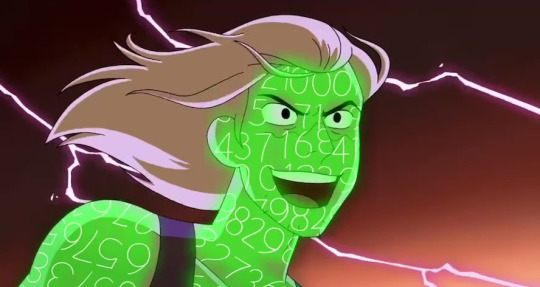
A tale of two "tragic downfall" villains.
Really think about this - the villain is someone who has suffered greatly in his life to the point of being a traumatized, fragile wreck of a person but is a close friend of the story's main protagonist and works alongside them for years until certain events make his hatred, pride, and need for power, control, and the loyalty of others grow and put him on a worse path, on which he betrays the protagonist and leaves them for dead, taking over his friend's group and making all of them follow him now, and when the protagonist returns to face him and get him to relinquish his control of the group, they have a fight to the finish where the villain proves once and for all that he is too far gone to see reason and beyond hope of redemption, so he ends up meeting a terrible, painful demise. Which one did I just describe?
And I don't want to tear either one of them down, since they're both phenomenally written villains who star in their own dark, tragic tales that were both very well executed. ....BUT, I have to go here: I believe there is one thing that one of them got down a lot better than the other one. And it ain't the damn dirty ape.
I am referring to the quality of pathos, which is derived from, for lack of a better word, humanizing the character. Matt Reeves has expressed very clearly that we are intended to feel pathos for Koba, and for his limited screentime in Rise of the Planet of the Apes and in the first act of Dawn of the Planet of the Apes, we do. The poor bonobo was terribly abused, tortured, traumatized, and damaged by callous human scientists and has the physical scars to show it. Even after joining with Caesar and being allowed by him to personally kill his abuser, the deep hatred of humans and fear of what might happen to him and other apes should humans find some way of striking back at them remains with Koba for years; the one thing he ever learned from humans was hatred and nothing else, as Caesar puts it. But the deeper into Dawn we go and the worse Koba gets, the issue arises. Caesar and all these apes were family to Koba for a good many years, years lived in peace and relative happiness, with Caesar even likened to a brother to Koba. However, after a heated dispute with Caesar over his willingness to work with humans turns violent, Koba is beaten down and sees none of the other apes are on his side, he turns his thinking around to view any "weak" ape who'd side with or have leniency on humans to be no better than humans, and that he needs to secure the loyalty of the stronger apes (including Caesar's own son) by taking Caesar's life and framing the humans for it. So he goes for it. And keeps going. And going. And going. And in all this time he's being a villain, the whole second half of the movie, there's not a single moment where Koba ever feels conflicted over what he's doing, no visible traces of remorse nor any sign that he's internally pushing back against remorse because second-guessing himself and surrendering to feelings of shame would reflect weakness. After he's shot his "brother" and left him for dead, Koba is stuck playing the one note of being an evil, wrathful, deranged, murderous monster. There is no metaphorical dog he won't kick, no one he won't mow down in order to assert his dominance and satisfy his rage, and no limit to his blatant hypocrisy. And yes, it was the narrative intent to have Koba slide so far down the slippery slope that he becomes this twisted caricature of his former self who must be put down. But at the time he's condemned and dropped to his painful demise by the ape who was once his brother, there should be a tiny twinge of pity and sadness that it had to come to this....but I think most audiences just cheered when it happened, as there was nothing in Koba left to feel any pity towards.
For Simon, being the equilvalent to what Koba was in the second half of the film occurs only in Book Three's final episode, "The New Apex". In the episodes prior to it, throughout the course of Book Three, Simon is one of the main protagonists and has a wide range of facets and emotions to his characterization; we see moments of him and Grace having the sort of camraderie with each other that could only come from years spent together as friends that makes them both a bit easier to like despite their apalling actions, we get funny bits from him that endear him to us, we see him get sad, get frightened, get confused and unsure of the direction Grace is taking things in, hear about his personal interests, learn about his past trauma, see him vulnerable and interally torn up by conflict. When he works together with Tuba in the Color Clock Car, even sharing a laugh with her, figuring out she's colorblind, and learning more about the sad past with her deceased daughter that also shows him how much Hazel means to her, we can tell that all his views about "Nulls" and about the train are being challenged and he's starting to second-guess himself, to think that this "Null" might be so much more than he'd written her off as from the start, which would lead to guilt and shame over all the "Nulls" he'd mistreated and killed in the past...and so naturally, there's the internal pushback from Simon, because he not only cannot admit to being wrong, he cannot let himself be wrong: he has to be right all the time so that all the years on the train and in the Apex can mean and amount to something beneficial to him rather than having all been a sad waste that'd render him a pitiful, insignificant failure. So with all doubts dispelled from his mind and clear from his consicence, he deliberately and cold-bloodedly sends Tuba to her death, and feels proud to have done so. Things only spiral downward into further darkness and madness from there.
Simon finding out that Grace learned the truth about Hazel before he did and withheld it from him as a secret between herself and the "Null" is the tipping point for him. He snaps, turns against Grace and leaves her for dead, and like Koba, now feels there is no one in his life that he can trust to be on his side unless he were to force their loyal devotion to him through fearmongering and shows of dominance. And yet even in "The New Apex", even with Simon at his most irredeemably loathsome and psychotic, the writing allows for some pathos. When Grace saves Simon from falling off the train, he asks her why she did it. Grace responds "I don't know." Looking at Simon's face in the brief silence that follows, we can tell that deep down in his heart of hearts, he was hoping for Grace to give him a different answer. Something like "because I love you" or "because you're my dearest friend", or "becuse I didn't want to lose you", or "to make amends to you for everything" or even "because you're not the one who deserves to die; you were right about me, about everything." But instead, he hears a vague, ambiguous "I don't know", as it was just basic human decency from Grace and nothing deeper than that. And thus goes away whatever was left of Simon's mind and heart, as he kicks Grace off the train to her apparent death in an act that rescinds years of love and friendship built up with her, raises Simon's number higher than even Amelia's, and sends him into a complete mental breakdown as we see a surge of conflicting moods all over him. So then even if his grisly end that follows elicts some cheering from viewers (I certainly wouldn't blame them!), that tiny twinge of pity and sadness that it had to come to this is very much there by the time Simon is dust on the ground that Grace is sobbing over.
Two exceptional villains in two exceptional works, but only with Simon do I get the sense of a victimized and vulnerable not-all-bad person who tragically descended into becoming a mega asshole. With Koba, I just see a mega asshole.
#Planet of the Apes#Koba#Infinity Train#Book Three#Cult of the Conductor#Simon Laurent#villains#comparison#tragedy#tragic villain#opinion#criticism#analysis
34 notes
·
View notes
Text
The unfortunate implication of born evil
There's a reason why I stated that Belos/Philip works best as someone was a lot like Luz in his youth, serving as a dark reflection to what path she could have taken. Because the alternative is to suggest that Philip was born a psychopath and therefore evil from the start. Which is absolutely a horrendous interpretation that goes against the themes of the Owl House.

I came across this discussion thread arguing that Belos never loved Caleb at all, not even when they were children. As someone who has a brother who clings onto family to feel safe, this rubs me the wrong way.
The only time Born Evil works is for horror movies, where the less you know the more you fear works. But in a show that teaches audience that inherent differences are to be embraced and celebrated and that weirdos should not be treated as outcasts because they are "different," the idea of Philip being born a psychopath and thus has no love for Caleb even at the beginning undermines the whole message. It suggest that Philip could not be reformed but instead must be destroyed immediately. And that he is different from other humans, therefore we can separate him as an outcast. Which sounds similar to a certain belief that Philip has about witches.
But we see in the show itself, Philip was an orphan boy when he came to Gravesfield. The same Gravesfield that would later deem Luz to be an outcast for not fitting in with society. Philip and his brother had to become Witch Hunters in order to survive and be accepted by society. If they did not, they'll be left on the streets or worse, be accused of witches themselves.
So it's not surprising that Philip desperately wants to fit in society and why he wants to become a hero and Witch Hunter General. He learned early on that was the only way to never be an outcast again. In fact, his desire to be accepted into society is what drove him to become evil in the first place.
What makes Belos evil isn't his personality; it's rather his deeds, his choices, and his determination to be accepted in a society that changes their standards and probably won't accept him anyways. Him feeling guilt about murdering Caleb actually makes his actions worse because we know he is capable of choosing a better path, but still takes the worst path out of fear of the emotional pain. That's the whole point about Philip. He wasn't born a monster. He became a monster by his poor choices.
And thus, he serves as a reminder to Luz and the audience that anyone could become Belos under the right circumstances and that Belos is the product of Gravesfield's sins, especially regarding the treatment of people outside the norm.
If we were to accept that Belos is born evil, we inadvertently absolve our own flaws and pretend to be superior even as many of us wish for the most painful and primal physical death for Belos.
#emperor belos#toh#toh belos#character analysis#writing pet peeves#tragic characters#tragic villain#villain#I need to get this off my chest because I despise the implications#belos should be evil by choice#not by genetic inheritance#nature vs nurture
43 notes
·
View notes
Note
Hi i don't know if you take writing requests but if you do could you write a villain with mind reading powers?
I most definitely will take writing requests! Though, I won't write anything that makes me uncomfortable. Villains, though, I can do.
I will warn that this is gonna have some heavy topics, so here's your Content Warning: Affair outside wedlock, intense invasions of privacy, briefly implied transphobia, threats/execution of threats against a school/students
You wanted a villain, so here's a tragic villain with a backstory. Lemme know what you think🖤
(Like all my stories, this is not beta read/peer reviewed)
The Outlier
Max had known since he was a kid that he was special; stranger than other kids. For as long as he could remember, he was different; the outlier.
The first give away was the way his parents looked at him. Side eyes when they thought he wasn't looking. Whispers when they thought he couldn't hear. Smiles that didn't seem genuine, and only got faker as he got older.
The second tell was the looks he got from other kids. Girls weren't supposed to like the colour blue. Girls weren't supposed to like action figures and bugs. Good thing he's not a girl, then.
The third, and biggest thing, was that he could hear voices. They didn't usually talk to him directly, and were mostly whispers in the wind. When he told his parents, they told him it was cute to have imaginary friends. His parents were his parents, so they must've been right when they said he'd grown out of them.
But the voices didn't go away. They only got louder.
By the time he was ten years old, he could match the voices in his head to those of his classmates. The one always thinking about how cute Joshua is was Cindy's voice. The one constantly thinking about lunch and recess was Ethan.
All of the voices were so mundane and never really strayed from their normal thoughts. The bigger voices, though, the voices of adults, were interesting to listen to.
His teacher, Mrs. Kingston, only ever had three topics on her mind: Anticipation to get away from her students, her next lesson, or how cute Mr. Spring - who is not her husband - was.
Shame. Max liked this teacher. Oh, well.
As Max got older, the voices got louder, but he could still ignore them as though they were white noise. He'd even managed to figure out how to focus on one voice, making it louder while the rest faded out.
That's how he found out, in middle school, that the eighth grade chemistry teacher, Ms. Adam, was planning to blow the joint. Literally.
Her class had been working with some chemicals that, while mixed in small, were harmless, but were deadly in large amounts.
She, apparently, was on a downward spiral and no one knew anything. Well, almost no one. Max had known Ms. Adam was going through some stuff, but he'd always filtered her out. Not his circus, not his monkey.
Regardless, he needed to tell someone. If he didn't, then the whole school would be blown up by the end of tomorrow! As much as he hated school, he had grown attached to some of the people here. Besides, he quite liked living in spite of everyone he didn't think he deserved to. It was funny to watch them turn red.
Maybe that should've been the first red flag.
The second the bell rang, he was in the halls and quickly moving to the principal's office. He'd know what to do! He's an adult! He's the adult in charge of the rest of the adults, so they had to listen to him!
But adults don't believe children. Children don't know any better. Children don't know anything.
But Max did. Max knee everyone. Max knew people and their thoughts better than anyone else. And Max knew, for a fact, that the adults had failed him.
He managed to get thirty-two students out and to the far side of the field before the building went up in flames.
It was that event that ultimately brought him to where he now was.
He'd always been a smart kid, using other people's inner dialogues on top of his own knowledge to get things done. In a year, he amassed a following of other kids. Kids that had been failed by adults. Kids that shouldn't have had to grow up before their time. Kids who had only ever wanted to be kids.
Together, they grew. Together, they quietly took over the crime ring in the city. Together, the planned for expansion into the world. Now, together, they would take over the city. Then, together, they would work to take over the country.
If the adults were going to fail the children, then there was no need for them. The system was broken by adults who intended for their children to fix it, so the children were going to fix it. Adults had no place in the new system.
Max became The Outlier. The children he'd taken on as his own, despite being younger than a lot of them, became The Mavericks. Adults all over had become The Unwanted.
The Outlier would not allow The Mavericks to kill. He would rather have the blood haunting his nightmares for all eternity than to let even a drop stain the hands of a child. A group of older kids, however, disagreed. They named themselves Bohemians and they became his generals. They became the kill order. And The Mavericks never knew execution.
There were some who opposed the ordered death of The Unwanted, but they were few and far between. If they spoke too loudly, they became a part of the Court. They spoke in favor of adults, acting as their jury when brought before The Outlier and Bohemians. They never won a case.
Max had made it known, when he had taken over the city, that it was adults that had failed him - them - so it was adults that would pay.
Children were innocent, unable to do any wrong. They were to be protected from the people that would only continue to fail them.
But, quietly, in the privacy and secrecy of his room, Max dreaded the day he'd grow up. It's inevitable, he know, but he still fears that he'd become like them. He didn't want to be an adult because he didn't want to fail anyone.
#villain#writing requests#children#is this a cult?#probably#aults are useless#adults failed children#the system is fucked#writing#original character#original writing#original work#please don't use max#he is my character and I very much love him now that he's in the world#I've only had max for less than 24 hours#but if anything happened to him#I would kill everyone in the city and then myself#i would kill for him#tragic villain#sad stories#please mind the cw
3 notes
·
View notes
Text
Felix's arc throughout the show makes way more sense as an origin story than a redemption.
Think about it.
A young man finds out he's bound to the will of his abusive father. Finally, let loose by his death, he decides to make his own fate.
Though lies and mainuplation, he gets the power to control his own fate.
Along the way he discovers his cousin and a girl his age are in the same boat and he decides to help them too. But it's still not enough to take down the monster he helped create to get this power.
Thankfully, his new love has a friend who can defeat this evil. And together, they defeat him, and the four of them can live free and happy.
But it's not enough. For men like Felix, it's never enough. Somehow, someway, his own selfish desires, influenced by the power and a certain Italian voice in his head, turn him into the same monster that created him.
Now that's a villain! 😈
#miraculous ladybug#ml analysis#origin story#felix fathom#tragic villain#he who fights with monsters#damnation arc
19 notes
·
View notes
Text
Serious Thoughts About Jod (Nona spoilers)
Alright fine. I don’t really want Jod discourse to be the focal point of my locked tomb experience but since at least one person cares enough about what I think post-Nona to send me anons, I’ve collected my thoughts here. [Keep in mind that I was raised an atheist so I don’t have either happy religious context or religious trauma context for this series, and I’m aware that because of that I’m missing nuances. We’re all just going to have to live with that.]
Apologies in advance that this is a long one. Nobody’s under any obligation to read any of it. Saying that, I’m not going to be engaging with comments about or by: anyone who clearly didn’t read this post properly; viewpoints that are already set in stone; anyone who thinks that John is incapable of telling the truth in any way or form; the baby finger flower crown. Save your energy.
Alright: have my feelings about John changed since reading Nona? Well, not a huge amount. Bear with me. When I made a controversial shitpost outlining my enjoyment of John as a character, I wasn’t trying to make out that he was blameless or even a good guy. I said "I have to face the fact he might be a bad guy" which apparently did not land as a joke, my bad; however I do see a distinction between ‘bad guy for the sake of evil muahaha’ and ‘bad guy with sympathetic or understandable reasons’. Is John a bad guy? Yes, obviously he’s one of the villains in this story. But it’s not that simple. Casting it as black and white feels like a disservice to Tamsyn Muir’s writing.
My read of Jod’s story during Nona is the tragic fall of a good person to evil. [I’m taking his account to Alecto/Harrow as fact, because I feel that it was very deliberately set in a dream in order to let him speak freely and honestly.] Jod starts out as just some biologist in New Zealand trying to save the planet and as much of humanity as he can ("Nobody knowingly left behind"). That’s one point for Good Guy. Pretty much everything he does from there to the fall is a logical step, at least on some level. Should he have done some things differently? 100%. But I don’t think at any point leading up to the Resurrection he truly made a decision in the spirit of evil. (Later, yep, evil things were done. But I'm looking at the period from cryo project to Resurrection era specifically.)
Let’s take things one at a time. 1) John Gets Granted The Power Of Necromancy. None of this would have happened if he’d walked away from necromancy there and then: the billionaires would have left with no warning, humanity would have burned itself out or not… who’s to say? But could he have walked away? If he had tried to ignore it, would he still have been able to sense death? I’m not sure that was a possibility once the power was in him. He felt that he could use it to fix what was wrong, he was planning to use it for good. He started going a bit mad pretty much immediately, and that makes sense. The huge shock of the project getting shut down and then the utter strangeness of being able to sense the bodies. I think I’d start to go a bit strange too.
2) They Stream The Necromancy. Lots of people came to see John for miracles and he cured everything he could (+1 good guy point). It was the nun/Cristabel who told him he had to limit it or charge for it or whatever. (I wonder how differently would things have turned out if he had continued to spend 20 hours a day curing fibro and cancer?) She said it would bring the heat down if he kept doing it, but it was a bit late by then, wasn't it? The government asked them to come in, as they’d been dreading. Should they have given themselves up? It didn’t seem like anyone else had the means to save the planet. I don’t think it was wrong to resist. They would have arrested his friends and put him in a lab underground to study. I don’t think it’s wrong to try and avoid that. Any genuine hero would.
3) Magical Inside-Out Animal-Shield Man. This one is always going to cause arguments. Do I like that he built a wall out of animals? No. Do I think it was evil? Also no. As he points out, it was quicker and more painless than slaughter for eating, and since a lot of them were destined for eating and I’m not vegetarian I can’t really fault that. I understand that any vegans reading this series are going to be pretty unmovable on this specific point. I respect that. It would definitely be bad guy points if he was nasty about it, but he was ashamed and acknowledged that it sucked. I think "extenuating circumstances" is a fair defence here. [It drives me kind of nuts that people reading this series use ‘cows have best friends’ as serious condemnation. You’re agreeing with the scumbag billionaires, guys!]
4) They Realise The Billionaires Are Running. In all honesty everyone got a little too obsessed with this. It sucked that they were going to take the ships that were supposed to be used for cryo, but aside from that, so? Good riddance, right? I think it was something for them to focus on when they didn’t know what else to do. They all seemed to conflate stopping the ships from leaving with fixing things. Cassiopeia asked if they should be focusing on the ships when they could be focusing on saving the planet instead, but nobody listened to her. It was Pyrrha who told John to ‘be a bad wizard’! Honestly I feel like most of the bad decisions John made were under peer pressure from his friends.
5) John Agrees to Puppet A World Leader. Mostly he did it because they offered so much money, and that sounds like bad guy points but they were out of options for saving the planet without money. When he realised it was – the president of the US or something – he didn’t want to do it but the others pushed him to keep going. And he didn’t want the nuke (+1 good guy points)! That’s very important. Mercy and Augustine pressured him into that too (premeditated).
6) John Kills A Bunch Of People. Okay, this one seems like it should be easy bad guy points, but I hesitate. He finally sees something that might be The Soul when those five people die outside the dome and describes it as crack cocaine, or what he imagines crack cocaine would be like. I’ve never done cocaine, but from what I understand about it I’m not sure I can entirely hold John responsible for what he did next. Yes, killing all those people was Bad and Wrong and Murder and Illegal and any number of other synonyms – but he was high. He was like a shark in a blood frenzy. He was not in control of his senses. That doesn’t make the killing less wrong, but was it something he chose to do? Not… exactly? He admits that it wasn’t an accident but if we’re going to hold him fully responsible for that we have to condemn every coke addict for their actions while high as if they were sober and in their right minds. (I’m sure some of you will. Drugs and addiction are a mental health issue. Those people need rehab, not prison time.) John is very sick by this stage.
7) They Spook The Trillionaires. Talking to the government sends the FTL crew into a rush to get out. John’s team, especially Mercy, desperately want to stop them, I think so they can use the same ships to get everyone out in cryo instead? (Meanwhile the only thing John really cares about is working out the missing link between alive and dead. He’s consumed by needing to understand necromancy. I think I would be too, to be fair. Can you imagine being given awesome and terrible power that nobody else has ever had and being expected to focus on anything else?) Anyway that’s when they decide to use the nuke as a threat (+1 bad guy points, but not entirely his idea). He still doesn’t want to use it, but he arms it without telling the others (+1 bad guy points, though I think it’s a little unfair of the others to be mad when they forced him to have it in the first place). At this point John threatens nuclear war through his Leader Puppet (+1 bad guy points), which the others really are mad about (fair). I don’t know if he still thinks he is saving the world at this point. Cassiopeia doesn’t think so. He’s become an environmental terrorist.
8) Necromancy Cultists Change Their Minds And Take Hostages. Let’s tally up problems. G1deon-with-nuke is sniper bait in Australia while John tries to negotiate. He has his puppet’s finger hovering over the button on the really big nukes. It’s mere hours until the ships launch. The cultists are threatening to gun them all down. What do you do in this situation? The right answer is obviously don’t nuke anyone – but then the ships escape and you probably all die by cultist unless you’re willing to remotely murder them (and John says that he didn’t because he was proving a point, not because it’s morally wrong at this stage (+1 bad guy points?). I’d say let the stupid ships go, once they’re gone you can use the money they left behind to build more, right? But the ships aren’t taking all the politicians who still want to arrest John and co, so it doesn’t really solve his problem. John’s biggest fear at this point was that he’d lost his friends. That’s important, remember that for later. He offers to give himself up to save the hostages (+1 good guy points?) and the others won’t let him so he sends skeletons instead and that’s when the cultists manage to break into the facility. He wants to kill everyone nearby so he has space to think (+1 bad guy points) but doesn’t (+1 good guy points?). Ironically it probably would all have worked out a lot better if he’d just accepted the cost and killed the cultists so he could focus on all the negotiations and maybe find a solution (or at least enough presence of mind to think ‘what the fuck’ and back down from the nukes).
9) Cristabel Kills Herself. John thought she was there to kill him and he was going to let her. Instead she shot herself to try to help him find The Soul and it worked. He found the key to the soul, but he also found Alecto. He couldn’t hear anything over the sound of her screaming. All he had wanted from the beginning was to save the planet and he could suddenly see her soul and how much pain she was in. From this point on (until the end of his account) I don’t think John really made any decisions, per se. This next part is written like a dream within a dream. There was gunfire inside the facility and everyone was dying – he could probably have caught their souls and put them back in, but what would the point have been if they’d just immediately get shot again? I don’t even know if he could have when all he could hear was Alecto. So he set off all the nukes because he couldn’t concentrate on everything anymore (+1 big bad guy points) and everyone else died. He killed as many as he could before the nukes got to them, painlessly like the cows (+1 good guy points?). He was still obsessed with stopping the ships. I don’t even think it was his own obsession at this point. It was the last human thing he had to cling to, the memory of fear and anger that the ships were abandoning everyone.
I don’t think this can be compared to anything real. Nobody has ever faced something like this. I can’t say what I would have done in his position because I have never had to deal with the pain and fear and noise of a whole planet screaming in my ears while staggering with godlike magical power. Neither have you. You can’t say you would have done better.
10) John Eats Alecto. Again, the cocaine hit. Again, the blood frenzy. Once he started eating souls he couldn’t stop. That’s bad guy points, but almost by proxy. He wasn’t in control. He was barely human. He wanted Alecto to take him but she didn’t, so he took her instead. He wanted her to stop being in pain. He went about it badly. He should have left her to scream herself out and then lick her wounds and recover. But I don’t think stopping was an option for him, by that point. I think he’d have had to kill himself to avoid the pain of her screams and I’m sure a lot of people think he definitely should have, but I’m not into encouraging people to commit suicide even if they’re a bad person, so. [Everyone’s obsessed with him making her look like Barbie and how yuck that is, but he also says he tried to make her look like a Renaissance angel. I think he was trying to be respectful to her by conjuring the best image of beauty he could in the midst of madness and panic. Based on the way she ‘kisses’ Harrow later I don’t think there’s anything remotely sexual between them or even romantic, so I don’t think it’s that weird to try to make her beautiful.] Anyway he can’t reach the ships so he also eats the sun and the other planets (+1 bad guy points but Alecto’s just as keen as him so only half blame) and then he does his best to kill everyone on the ships (+1 bad guy points) but mostly fails as they’ve already hit FTL. He should have given up on the billionaires, at least later after he’d had time to calm down and get used to sharing two bodies with Alecto. He should have just let them go. But of course it’s not just his anger, he’s sharing Alecto’s pain and betrayal toward them. He might not be able to stop hating them as long as she’s alive.
11) The Resurrection. It’s good guy points that he brings people back, but bad guy points that he’s choosy about it. He should have resurrected everyone and let them start over since he was wiping memories anyway. I understand why he wiped the memories. In general, how could he try to build a better world if everyone was clinging to the past? It doesn’t make it right, but I see the logic. Regarding his friends specifically, partly it’s that fear from earlier that he’d lose them because of what he did, but partly it’s also pity. Mercy and Augustine in particular, but all of them, share responsibility for what happened. They pushed him to keep going. They developed the obsession with the ships. They got him the nukes. He didn’t want them to carry the same guilt. I’m not saying it was right to wipe their memories. But I understand it. Some people think he doesn’t care about the people around him, but I think John cares too much. He’s willing to do very bad things because he cares too much about his loved ones. It’s bordering on obsession which is toxic, but it was born from real love. (Why did he change their names? Did he even change them? I don’t know. That’s one of the missing pieces. I don’t feel a need to speculate on it at this stage.)
He knew the RBs were coming and didn’t tell his Lyctors initially (+1 bad guy points, buuuut he hasn’t explained why). Or that he couldn’t be killed by them. Why does he run from them? Send his favourite companions to die? I hope we’ll find out.
He let his friends get the Lyctoral process wrong (+1 bad guy points) and kill their other halves – I’ve seen a theory that it’s because he was jealous of Mercy, Augustine, G1deon, Cassiopeia loving anyone else, but he seemed to love Pyrrha so much too. Maybe that’s why she’s the one that kind of survived.
He tried to build a society that was better than the one he left behind – no cars, no nuclear, no homophobia, no internet – and in some ways he probably succeeded (good guy points?). It’s an imperialist society (I think fascist is a stretch – it’s not very different to most conquering nations in earth’s history and to call them all fascist because they wanted to expand just seems kind of pointless) and the Cohort stuff is bad – child soldiers are big bad guy points – but a lot of that was G1deon and Pyrrha (John obviously has final say on everything but I’m saying it wasn’t necessarily his idea). The people living in the Houses seem reasonably happy, at least outside the Eighth and Ninth Houses. [I don’t think ‘he’s the leader of a death cult’ is reasonable grounds to condemn – I don’t think necromancy is inherently evil, in general, compared to a lot of other kinds of magic. That’s a wholeass conversation on its own, though.]
He locked Alecto away (+1 bad guy points) because he was afraid she was a vulnerability (and because the others kept begging him to kill her because she’s a ‘monster’). This is honestly one of his worst moments for me because it’s a definite Bad Choice he made with time to think it through and consider his options. I could argue that he was protecting her because Harrow says "You’re afraid of so many things, but she’s only afraid to die" and maybe it was a kindness to put her to sleep where she was safe – but he didn’t do it to alleviate her fear, he did it to protect himself. No moral high ground there.
He can’t let go of his need to punish the billionaires/BoE (+1 bad guy points, though as I’ve discussed I’m not sure that’s all him) – funnily enough wiping the memories really screws himself over in this case, as he tells Augustine the man he was before the Resurrection would have been disgusted at the idea of letting them go and it’s probably true. Billionaires/BoE are undeniably bad guys too (discussion for another post) but that doesn’t mean it’s good guy points to keep going after them.
There’s a ‘discrepancy’ in the numbers of souls Resurrected which is a puzzle I’m hoping will be solved in AtN – I have no idea what’s going on there so I’m not counting it as good or bad right now.
He thinks about killing everyone and starting over again with another Resurrection (+1 bad guy points). I almost wonder if he’s done it before. Ten thousand years is such a long time. He’s so calm and thoughtful about it and that’s horrifying. John is thoroughly insane. Grief, guilt, sharing Alecto’s soul, and the sheer weight of time have stripped away his humanity. He was barely human when he merged with Alecto and he is something else entirely by now. Once again I don’t think it’s useful to compare to real-life scenarios. There has never been and never will be anyone like him. We cannot comprehend what the inside of his head is like. I think it must be awful to be him. He’s insane and he’s alone and he’s very traumatized and I think the only remotely human emotions he has left are the fear that his friends will leave him and the anger that the billionaires abandoned earth. He completely falls apart after he loses Mercy and Augustine and G1deon – yeah yeah, he deserved it in the end blah blah- but isn’t that sad? Fear and anger and terrible numbness for ten thousand years. I pity him. I pity those he’s hurt too, but those feelings can co-exist.
[I don’t know what’s going on with him and Gideon/Kiriona. I do think he was genuinely pleased and excited to find out he had a child, but the timing bombed. I don’t know why he didn’t Resurrect her properly (can he even still do that with Alecto locked away?). I don’t know why he changed her name. The situation is not a good look. +1 bad guy points.]
John is absolutely a villain as the series stands, but I don’t think he started out with selfish or evil intentions. His story is the perfect example of ‘you either die, or live long enough to become the villain’. It’s a classic trope in fantasy. He knows that he was awful and calls what he did 'a damned thing' - he cries, he rages, he carries so much regret and guilt for it: that says tragic fall to me. Another thing that strikes me: I live with a lot of mental illnesses and to me this is the story of someone who is very unwell. Tamsyn Muir has been reasonably open about her own struggles with mental illness; so much of this series is about mental illness in various forms. I think that’s an important lens to view John’s story through. He’s a wretched character and it doesn’t excuse the sins he’s committed and continues to commit, but I think it certainly explains them. I think he made more mistakes than evil choices. I can condemn some of his actions and the way he lives now, but I feel pity too. He wanted to save the world and nobody listened to him and everyone vilified him and he was living with the burden of necromancy and he was racing against the clock and he snapped and I think that’s realistic. It doesn’t make him right but it makes him human and very very sad.
#the locked tomb#locked tomb spoilers#nona the ninth#nona the ninth spoilers#john gaius#god#gideon the ninth#discourse#tragic villain#mental illness#g9#tamsyn muir#this post will probably get 8 notes and no discourse at all but eh
60 notes
·
View notes
Text
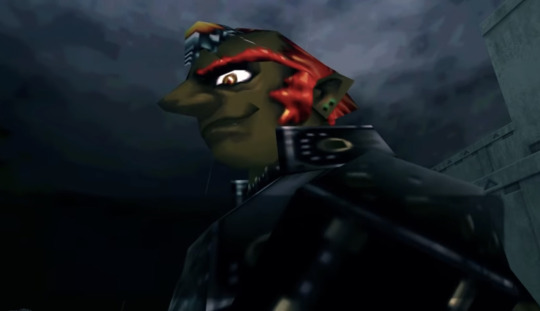


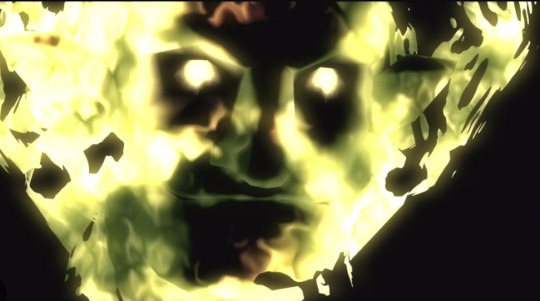
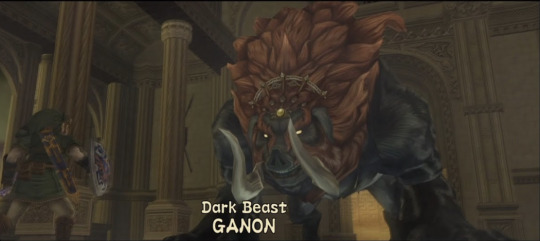
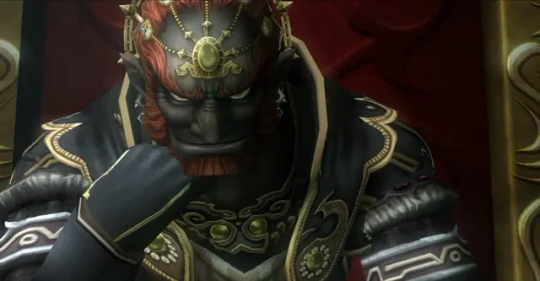
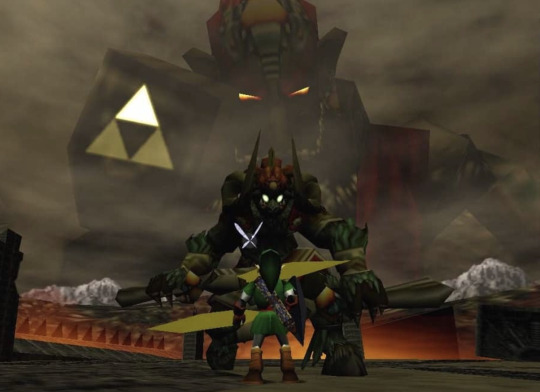
Child Trilogy Ganondorf Appreciation Post
#ganon#ganondorf#the legend of zelda#legend of zelda#ocarina of time#twilight princess#magnificent bastard#complete monster#tragic villain#demons#dark lord#evil entity#tyrant
88 notes
·
View notes
Text
INFJ/INTJ Villains are something else.
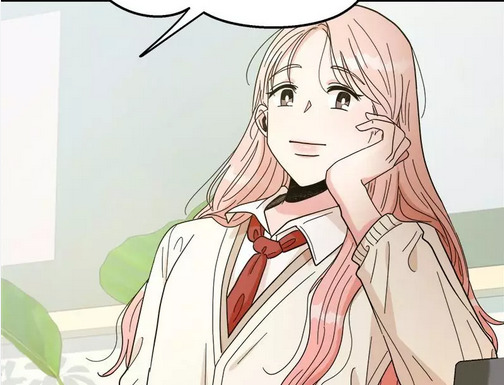
Harin (Pyramid Game)
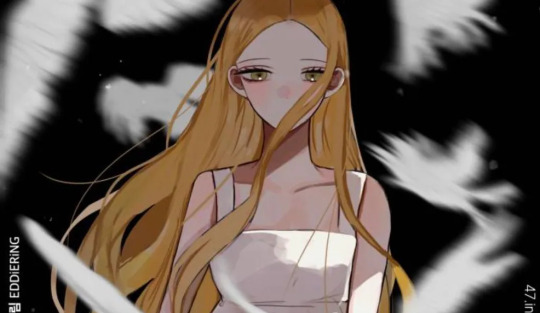
Suji (Trash Belongs In The Trash Can)

Johan Liebert (Monster)
Vs Vs.
Tragic villains - Well written character - Obsessive - Care about loved ones - Childhood trauma - Mastermind manipulation - Tragic backstory - Psychological horror - Redeemed villains - Star of their show - Believe or not, all they want is to be loved/exist.
#johan liebert#monster naoki urasawa#monster#trash belongs in the trash can#suji#pyramid game#harin#tragic villain#well written#infj characters#infj villain#psychological horror#webtoon#manhwa#manga#infj#intj
28 notes
·
View notes
Text

"Freakish and dismal, hollow and bleak, stubborn, pale akaryocyte." 🤍
#ruckis vandalizes#art#artists on tumblr#non fandom oc#order of the stars#geragera guffaw#fursona#shapeshifter#soulshifter#monster character#monster design#monster furry#slime furry#slime monster#monoped#the mind electric#drawing#illustration#original character#oc#digital art#sona#moon coded character#left brain#right brain#villain#tragic villain#irredeemable villain
6 notes
·
View notes
Video
"We were not born, we were made"
#mr freeze#batman#sandman#spider-man#star wars#jason voorhees#friday the 13th#tai lung#kung fu panda#sephiroth#final fantasy vii#darth vader#villain#villains#tragic villain#tragic villains#PEGGY#villains aren't born (they're made)
32 notes
·
View notes
Note
Do you think Lex Luthor could get the "Vlad Masters Redemption Treatment"?
If so, How? If not, Why?
I think it depends on what iteration of Lex we're talking about, but in general, not really. Here's why:
Vlad, like all ghosts and halfas, works off certain obsessions. He doesn't always want to do what he does, I think; he HAS to satisfy that obsession. It makes it easier for him, mentally, to lean in on that obsession so he doesn't break his own core (killing him) or go completely mad.
Even in the aus where the redemption starts as an adult, it starts because of his obsession changing. Sometimes it's something big, like in Vlad & the Accidental Family Acquisition. Sometimes it's small, like in Jack the DILF of Amity Park. But he cannot fundamentally change until his obsession does.
Even when he wants to. It's part of why I like writing him- everything he does or doesn't do ties back to his obsessions or gaining something that makes satisfying them possible.
Most of my redemption aus happen early; this is right after death, or only a few years out, and he gets the help he needs before his love of Maddie can be twisted with the need of revenge for his death.
And for the DC folks: without an obsession, a ghost is gone. He's a fun sort of tragedy; having a family and controlling Maddie are very much counterintuitive. Controlling Maddie means he can never have her family- they'll fight tooth and nail for their wife/mother. Having a happy family means giving up on Maddie. He's unable to fight it unless his obsession latches onto something else.
Think of a ghost (or a halfas ghost half) as a computer program. You have programmed it to make paperclips, and pursue any avenue it can to make more paperclips. It can't not make paperclips, or work towards getting more material to make paperclips unless somebody else reprograms it.
Ok, so that's Vlad: everything goes back to two main obsessions, no matter what they are.
Now LEX, though. Lex is human. He's complicated. His obsessions with power, wealth, and destroying or controlling Superman are entirely his own choice! He has made repeated, calculated decisions to hurt people.
Lex is not a paperclip machine, to use the metaphor above. His greed is all him; he faces NO repercussions from stopping. Do you really think Superman or Batman would stop him if he decided he wanted to do the right thing for once, stop hurting people, do the time, and get mental help? Of course not!
Meanwhile, Vlad faces very lethal (or at least madness-inducing) repercussions for even thinking about trying to stop.
They are both evil. One is a sort of tragic evil; the paperclip machine that turns the world into a ball of goo to keep making paperclips for people who aren't alive to use them anymore. (In one fic, I turn this around- he was Like That before the accodent, so he's like this now, and no pity should be shared).
The other is just evil. Just plain, normal, human greed and lust for control.
Vlad is evil, he knows he's evil, and makes no apologies for it; again, he's very much like a machine. Sometimes the human half can think of a way around it (I think that's really what happened in those 20 years- Vlad trying to convince the other half that it wasn't ready, to try and delay the inevitable.) If someone can reprogram the machine, that's great! Vlad WANTS to be reprogrammed! But he needs help to do it.
Lex is evil, he knows he's evil, but he makes excuses for it all the time. It's Superman's fault he felt the need to clone him! It's X persons fault he felt the need to use slave labor! It's always someone else's fault.
Vlad will keep coming back, again and again, until someone breaks the programming because he has no choice. Lex will do it because he wants to.
#inthememetime#character analysis#this was fun!#lex luthor#vlad masters#redeemed vlad masters#dp x dc#danny phantom#tragic villain#vs#entitled asshole villain
96 notes
·
View notes